To improve the employability of our graduates, CEU Universities are leading an innovative change to bachelor’s degree programmes, by adding microcredentials to them. These are the qualifications of the future, enabling students to display the specific skills they possess on social networks in an effective way.
Employers are looking for more than a degree
Employers are certainly looking for graduates, but graduates who also possess specific skills and competencies stand out from the rest. That’s why it's so important for candidates to display the competencies they possess.
Over the course of their degree, CEU students can gain a series of personal and professional skills which are highly valued by employers. Microcredentials allow the University to certify that its graduates possess these skills – and enable employers to easily verify this.

What is a microcredential?
- A microcredential is the digital certification of a particular learning outcome, skill, or competency.
- It provides detailed and valuable information about what the holder is capable of in a professional environment, ensuring that those who have microcredentials stand out more to employers.
- A microcredential generates trust, as employers can see how the person has acquired the corresponding skill or competency. At CEU, we issue microcredentials in the form of digital badges, meaning that they are easy to share and verify.
What CEU microcredentials are there?
CEU microcredentials form part of an ecosystem which covers all the competencies which you can acquire during your time at the University.
The CEU Microcredential Ecosystem has been audited and is subject to a process of continuous improvement via the Procedure for the Design, Creation and Evaluation of the CEU Credential Ecosystem Using Badges and Learning Pathways, part of the University's quality assurance system.
The ecosystem includes:
- 21st Century Skills, divided into six areas
- Learning pathways leading to microcredentials and integrated into your degree programme
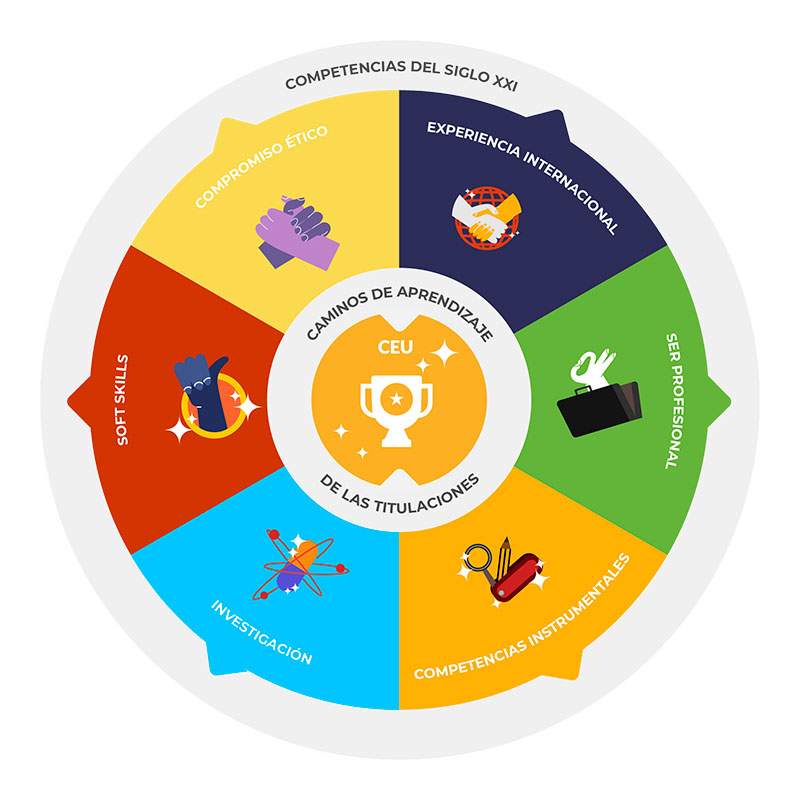
21st Century Skills
CEU UCH students can find all the information on the badges and microcredentials available for 2023-24 on the intranet.
Ethical commitment
Competencies concerning social awareness, civic responsibility and sensitivity to the environment – developed at the University and certified by it.
Research
These competencies concern the application of the scientific method in a specific area, contributing to the progress of society.
Instrumental competencies
These are the value-added competencies concerning the use of information management resources, digital skills and the ability to speak foreign languages.
Internationalization
These are the competencies you will need to operate effectively in today’s globalized workplace.
Soft Skills
These are personal skills which go beyond mere knowledge of information: they are what differentiate a top professional from the rest.
Being professional
With these competencies, professionals can operate in a range of different organizational settings and stand out in the job market.
Learning Pathways
Our learning pathways consist of a gradual learning journey, in which students can achieve milestones on the way to attaining the final competency. When a learning pathway is completed, students are awarded a microcredential is issued which can be shared on social media demonstrating that they possess a valuable competency.
What are the benefits?
- Our learning pathways enable learning experiences to be personalized.
- They provide motivation to keep on learning.
- They enhance performance as the standard of work required increases as the pathway progresses.
- They encourage learner autonomy and self-regulated learning.
- By completing a learning pathway, students enhance their skills profile and become more competitive in the job market.
There are degree-specific learning pathways at CEU - what form do they take?
- These are designed by the staff responsible for each degree.
- These pathways can include: 21st Century Skills badges, degree courses, learning activities which form part of a course, activities with external partners, awards, etc.
Interested in a specific pathway? Visit the page for the degree in question
Example of a learning pathway: Digital Literacy Skills for Educators, for the Bachelor's Degrees in Primary Education and Early Years Education at CEU UCH
How can students get CEU microcredentials?
- By taking part in some of the many different learning experiences which are possible at the University.
- By following a degree-specific learning pathway
How are they issued?
- The University issues microcredentials in the form of digital badges using Open Badge 3.0 technology, from the CEU account on the Canvas Credentials platform.
How can students display their microcredentials?
- CEU microcredentials and badges can be easily shared and displayed on LinkedIn, personal website, CV, portfolios, or any digital platform. To do this, students must register on the Canvas Credentials platform.
If you are a student, check out the information on the intranet about how to get microcredentials.
Peer issued badges: issued by students to students
What are peer issued Badges?
- These badges are issued by students to other students, in recognition of their learning.
Why have peer issued badges?
- They encourage student participation and involvement in organizing activities.
- They provide a visible reward for hard work.
- They provide a different and stimulating kind of learning experience.
How can I get them?
- Join a student club to get peer-issued badges.
- The Student Clubs determine the earning criteria for the award of these badges on an annual basis.
- You can find a list of student clubs that issue badges on the intranet.
The development of the CEU Microcredentials Ecosystem: a quest to improve our students’ employability
We’ve been working on raising the profile of the skills that CEU students acquire during their time at the University since 2015. We started with what was called the Certificate of Competencies: students received this in PDF format when they graduated. In 2019, we transformed this certificate using Open Badge technology, via the world’s leading badge-issuing platform, Badgr.com. Since then, the CEU Microcredential Ecosystem has undergone exponential growth. In 2022, we took another leap forward with the release of the Open Badge 3.0 standard and the growing awareness of the concept of microcredentials across the world.
Click on the different years to see the milestones of the ecosystem's development.
- Launch of the “Certificate of Competencies” (PDF given to graduates recording the competencies acquired over the course of their degree).
What is the Open Badges 3.0 standard and why does it matter?
Welcome to the new generation of digital badges.
In 2022, the CEU Universities began using the Open Badge 3.0 standard. This means that our students can have their competencies digitally certified to the highest standard of security and can store their badges in digital wallets. The enhanced metadata enable the badges to be used in a range of types of certification, and are linked to machine-readable skills libraries, facilitating their discovery by search algorithms.
We are currently using the Canvas Credentials platform to issue our badges.
Get the latest microcredentials news on our blog
No hay noticias asociadas a esta sección
Ethical commitment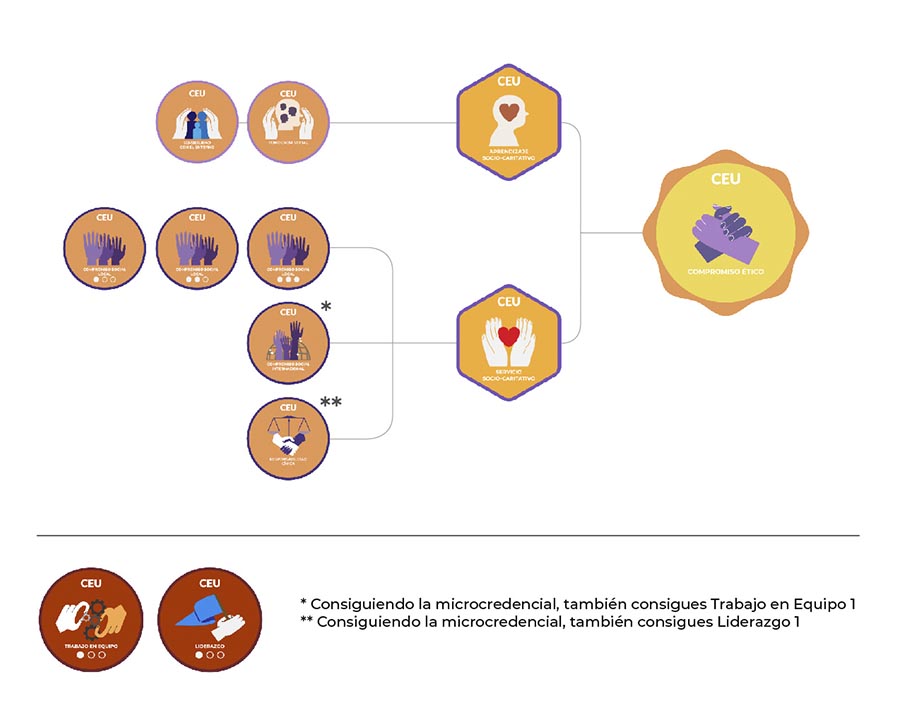
|
Research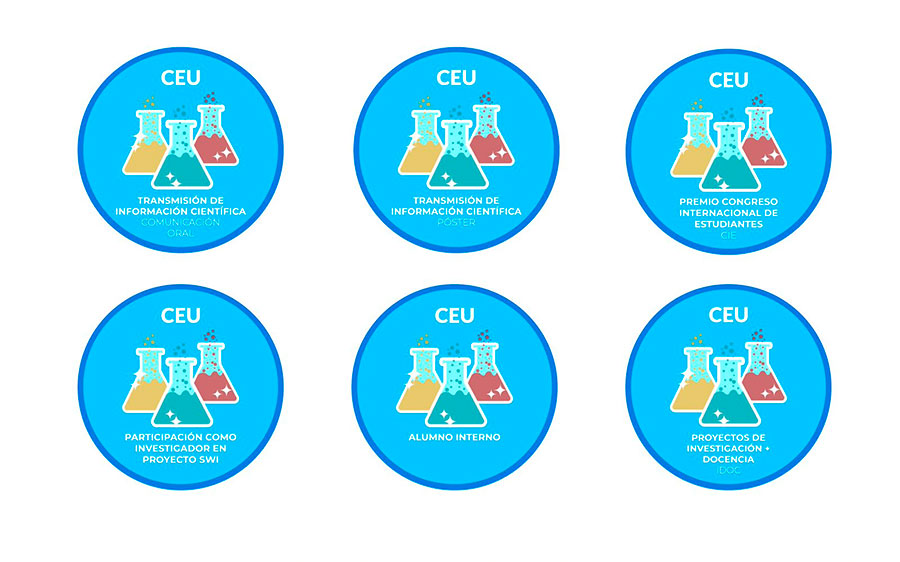
|
Instrumental competenciesLanguage skills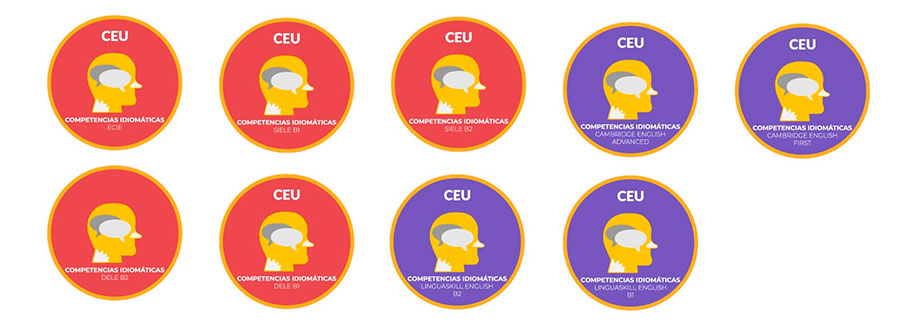
Information management skills
|
Internationalization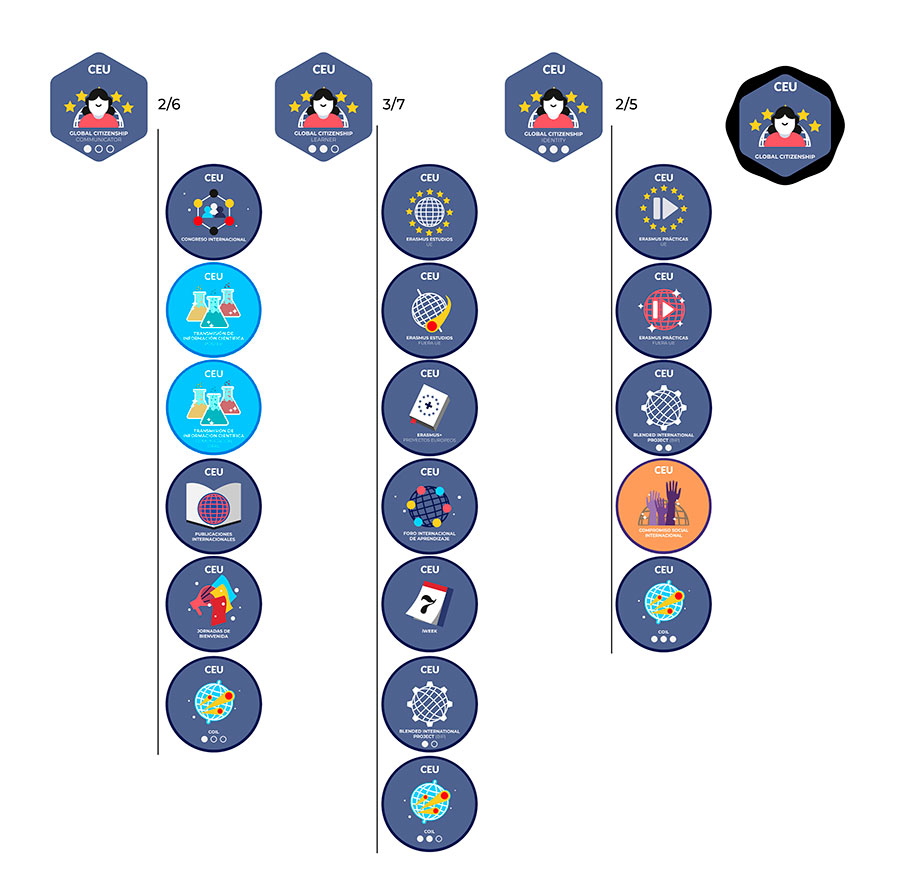
|
Soft Skills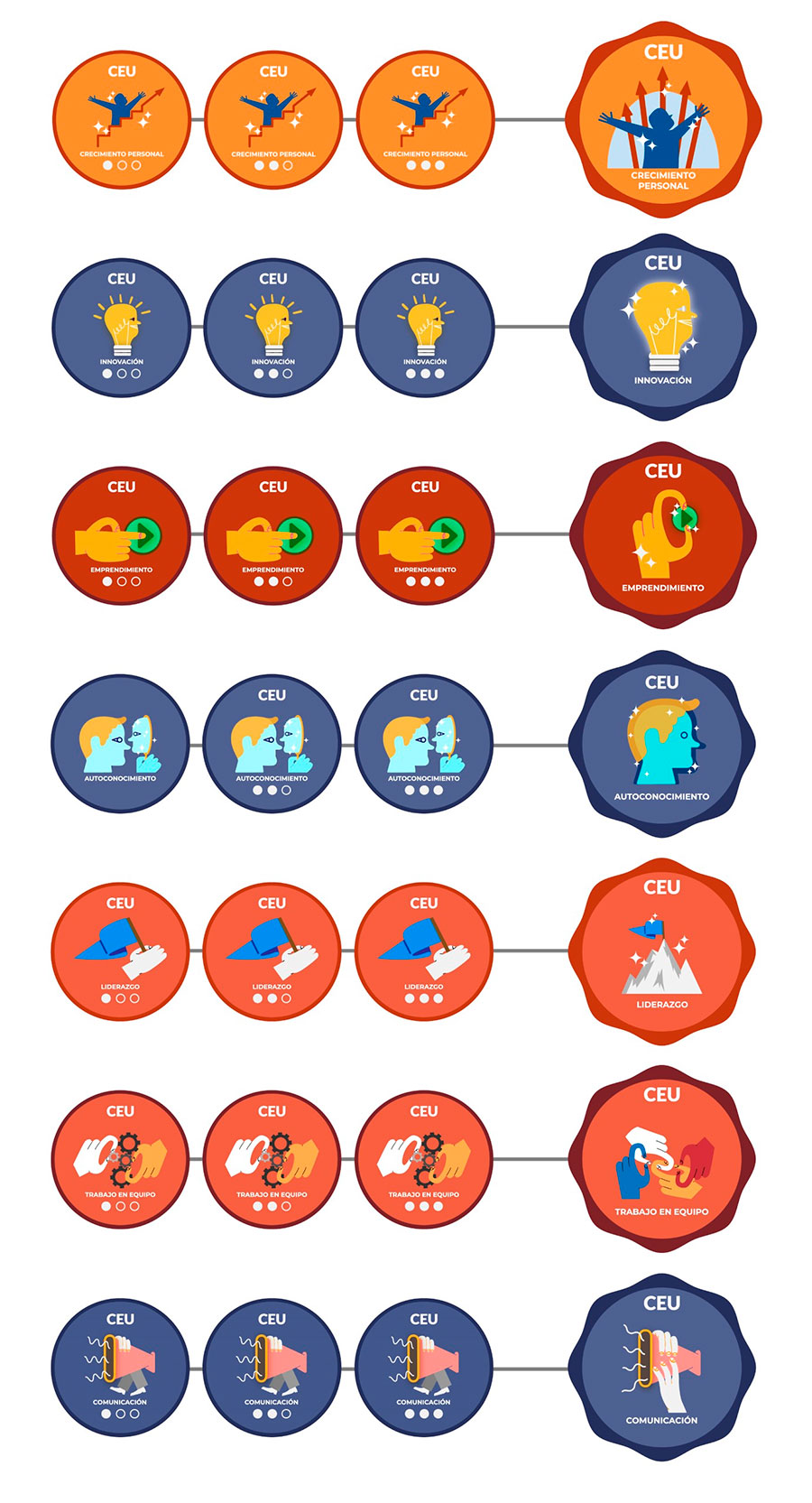
|
Being professionalCompetencies to boost employability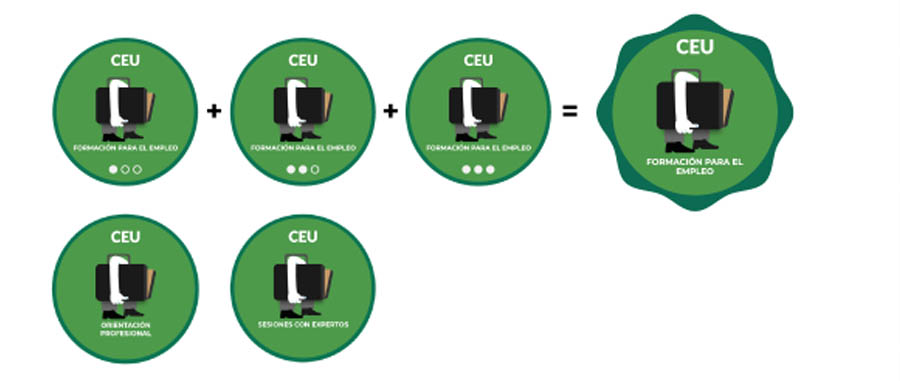
Social competencies for the workplace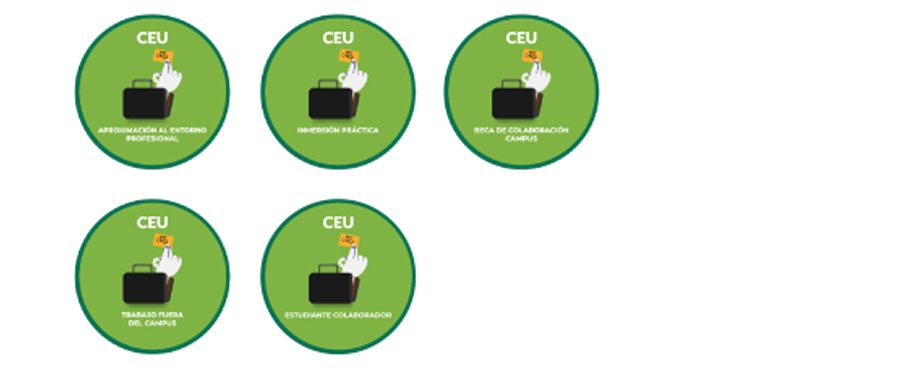
|

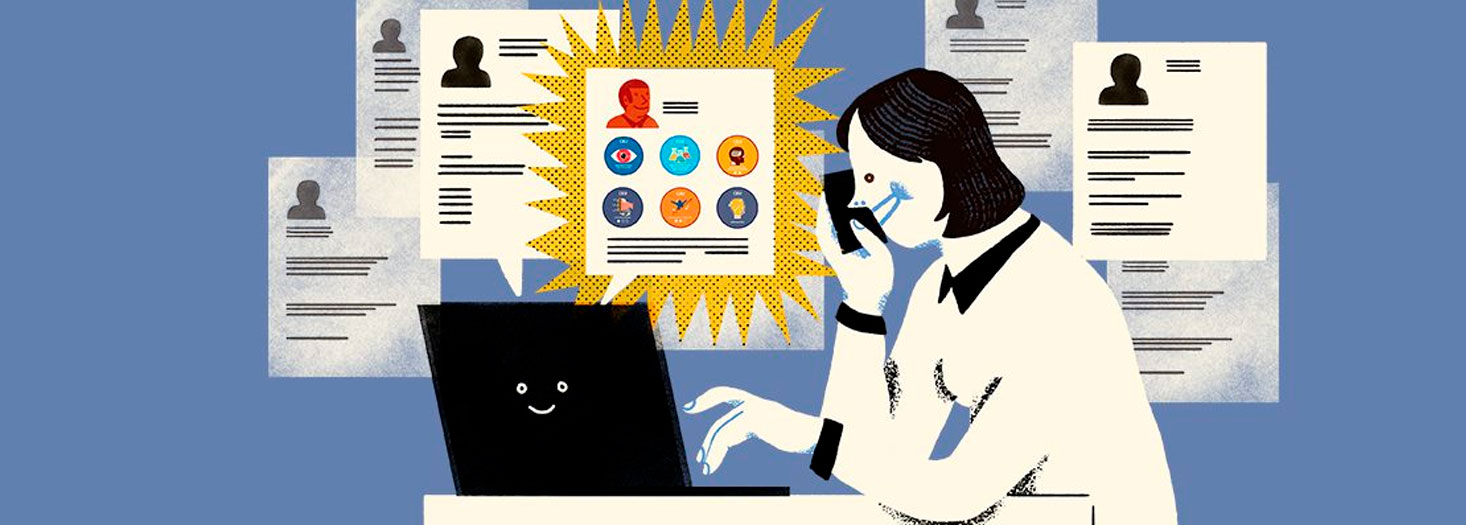

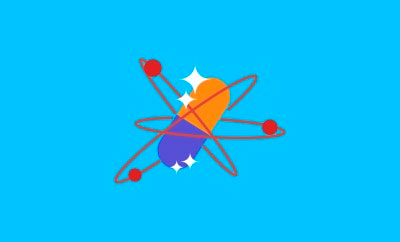
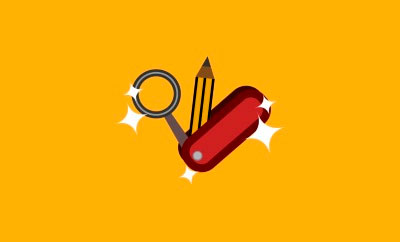



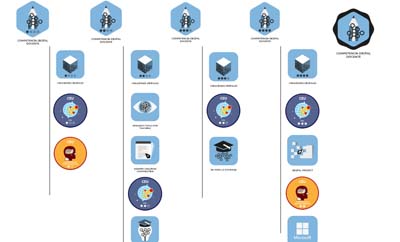




María Rosario García Bellido Vice-Dean for Education
"The Pathways enable us to strategically plan and design the skill development that our students will need for their careers. The fact that we can certify these skills is really the key, as it can give our students the edge in an ever more competitive job market."